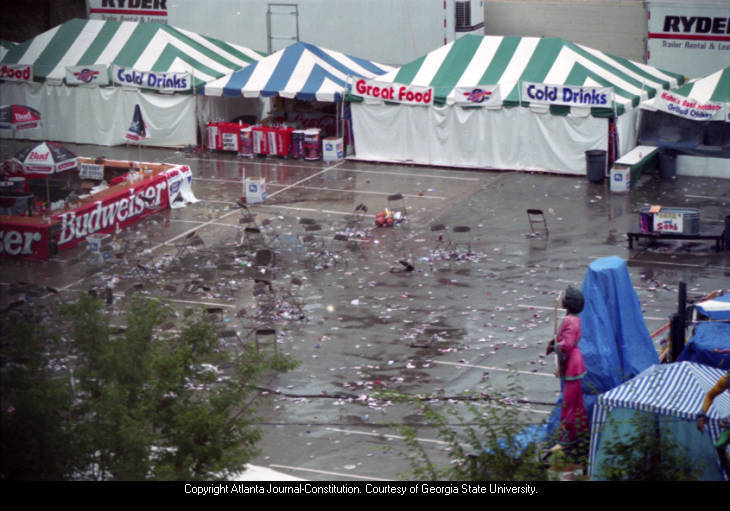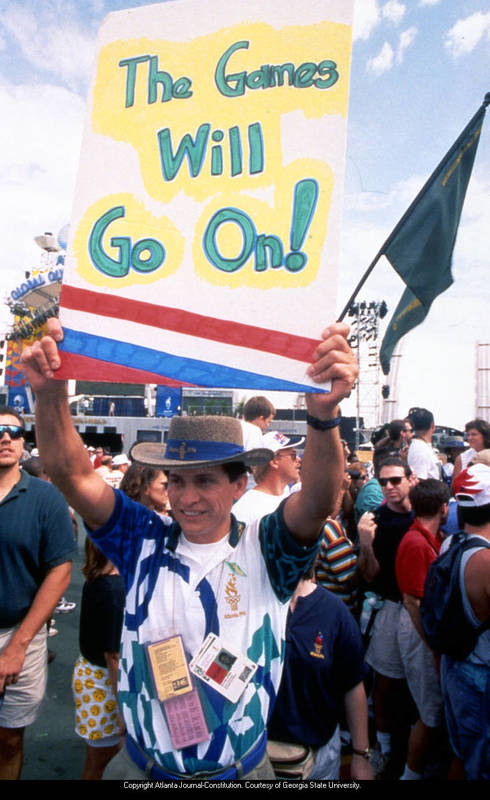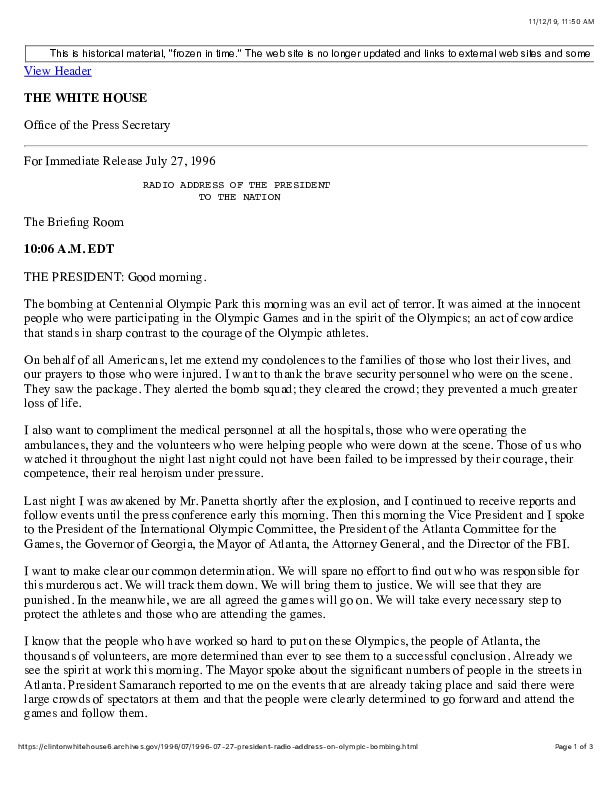The Centennial Olympic Park Bombing

The damage done by the bomb and the aftermath of the explosion.

The unbroken spirit of the Olympic spectators and their willingness to continue supporting the Olympic Games.

President Clinton's address to the nation the morning after the attack.
At 1:25 am on July 27, 1996 during a concert in Centennial Olympic Park, a homemade pipe bomb was detonated, killing two people and causing 111 injuries. The attack was carried out by Eric Rudolph, an American terrorist and former U.S. Army infantryman who was radically anti-gay and anti-abortion. The Atlanta Olympic Park bombing was the first of 4 bombings commited by Rudolph, two of which were carried out on abortion clinics and the other on a gay nightclub. When the police became close to finding Rudolph, he fled into the Appalachian Mountains for five years and was finally apprehended in 2003 (The Editors of Encyclopædia Britannica). He is currently serving a life sentence without parole.
The morning after the attack in an address to the nation, President Clinton called the bombing “an evil act of terror” and one that “stands in sharp contrast to the courage of the Olympic athletes” (Radio Address of the President to the Nation). Although the government allocated 2,500 federal law enforcement officers, 11,000 military personnel, and over 1,000 additional federal employees (The Olympics and the threat of terrorism), none of them were able to stop the terrorist attack from happening. When asked if he could completely eliminate the threat of a terrorist attack at the Olympic Games, Clinton says “I don't think anyone has ever been in a position to definitively eliminate an attack anywhere in America, you know, or anyplace in the world” (Radio Address of the President to the Nation).
Toward the end of his national address, Clinton says “We cannot let terror win; that is not the American way. The Olympics will continue; the games will go on; the Olympic spirit will prevail” (Radio Address of the President to the Nation). The public was unwavering in their support for the Olympics and seemingly refused to allow fear to stop them from attending the games. The Olympic Games continued in Atlanta and the Olympic spirit did in fact prevail.
The Editors of Encyclopaedia Britannica. “Atlanta Olympic Games Bombing of 1996.” Encyclopædia Britannica, Encyclopædia Britannica, Inc., 20 July 2019, www.britannica.com/event/Atlanta-Olympic-Games-bombing-of-1996.
“The Olympics and the threat of terrorism : Hearing before the Committee on the Judiciary, United States Senate, One Hundred Fourth Congress, Second Session on Examining the Threat Terrorism Poses to the Olympics and Steps Taken by Federal Law Enforcement and Military Officials to Maximize Security at the Upcoming Olympic Games.” HathiTrust, 11 June 1996, hdl.handle.net/2027/uc1.c059094735.